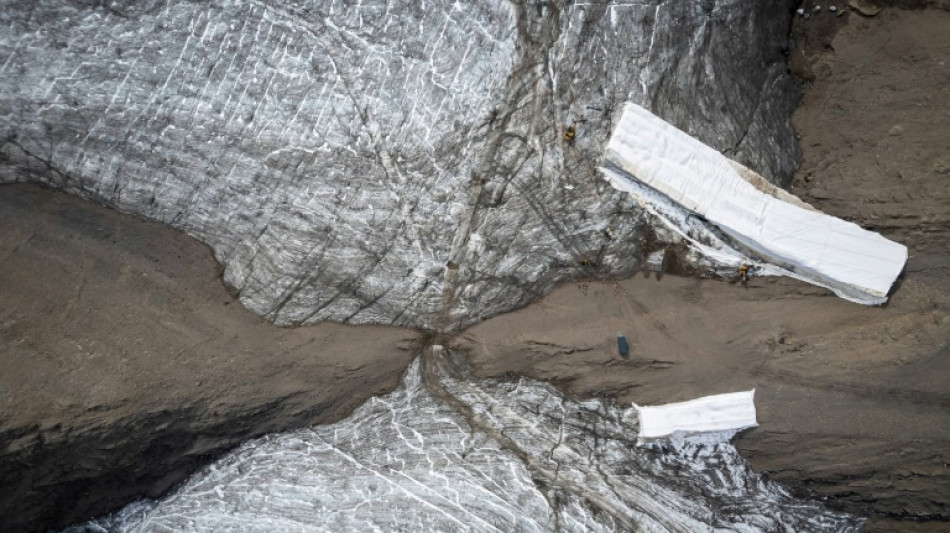
-
 England captain Stokes suffers facial injury after being hit by ball
England captain Stokes suffers facial injury after being hit by ball
-
Italy captain Lamaro amongst trio set for 50th caps against Scotland

-
 Piastri plays down McLaren rivalry with champion Norris
Piastri plays down McLaren rivalry with champion Norris
-
ECB holds interest rates as strong euro causes jitters

-
 Spain, Portugal face floods and chaos after deadly new storm
Spain, Portugal face floods and chaos after deadly new storm
-
EU close to sealing trade deal with Australia

-
 German Cup final to stay in Berlin until 2030
German Cup final to stay in Berlin until 2030
-
What does Iran want from talks with the US?

-
 Taming the lion: Olympians take on Bormio's terrifying Stelvio piste
Taming the lion: Olympians take on Bormio's terrifying Stelvio piste
-
Wind turbine maker Vestas sees record revenue in 2025

-
 Italy's Casse tops second Olympic downhill training
Italy's Casse tops second Olympic downhill training
-
Anti-doping boss 'uncomfortable' with Valieva's coach at Olympics

-
 Bitcoin under $70,000 for first time since Trump's election
Bitcoin under $70,000 for first time since Trump's election
-
'I am sorry,' embattled UK PM tells Epstein victims

-
 England's Brook predicts record 300-plus scores at T20 World Cup
England's Brook predicts record 300-plus scores at T20 World Cup
-
Ukraine, Russia swap prisoners, US says 'work remains' to end war

-
 Wales' Rees-Zammit at full-back for Six Nations return against England
Wales' Rees-Zammit at full-back for Six Nations return against England
-
Sad horses and Draco Malfoy: China's unexpected Lunar New Year trends

-
 Hong Kong students dissolve pro-democracy group under 'severe' pressure
Hong Kong students dissolve pro-democracy group under 'severe' pressure
-
Germany claws back 59 mn euros from Amazon over price controls

-
 Germany claws back 70 mn euros from Amazon over price controls
Germany claws back 70 mn euros from Amazon over price controls
-
VW and Stellantis urge help to keep carmaking in Europe

-
 Stock markets drop amid tech concerns before rate calls
Stock markets drop amid tech concerns before rate calls
-
BBVA posts record profit after failed Sabadell takeover

-
 UN human rights agency in 'survival mode': chief
UN human rights agency in 'survival mode': chief
-
Greenpeace slams fossil fuel sponsors for Winter Olympics

-
 Greenpeace slams fossel fuel sponsors for Winter Olympics
Greenpeace slams fossel fuel sponsors for Winter Olympics
-
Kinghorn, Van der Merwe dropped by Scotland for Six Nations opener

-
 Russia says thwarted smuggling of giant meteorite to UK
Russia says thwarted smuggling of giant meteorite to UK
-
Salt war heats up in ice-glazed Berlin

-
 Liverpool in 'good place' for years to come, says Slot
Liverpool in 'good place' for years to come, says Slot
-
Heathrow still Europe's busiest airport, but Istanbul gaining fast

-
 Highest storm alert lifted in Spain, one woman missing
Highest storm alert lifted in Spain, one woman missing
-
Shell profits climb despite falling oil prices

-
 Pakistan will seek govt nod in potential India T20 finals clash
Pakistan will seek govt nod in potential India T20 finals clash
-
China shuns calls to enter nuclear talks after US-Russia treaty lapses

-
 German factory orders rise at fastest rate in 2 years in December
German factory orders rise at fastest rate in 2 years in December
-
Nigeria president deploys army after new massacre

-
 Ukraine, Russia, US start second day of war talks
Ukraine, Russia, US start second day of war talks
-
Nepal's youth lead the charge in the upcoming election

-
 Sony hikes forecasts even as PlayStation falters
Sony hikes forecasts even as PlayStation falters
-
Rijksmuseum puts the spotlight on Roman poet's epic

-
 Trump fuels EU push to cut cord with US tech
Trump fuels EU push to cut cord with US tech
-
Fearless talent: Five young players to watch at the T20 World Cup

-
 India favourites as T20 World Cup to begin after chaotic build-up
India favourites as T20 World Cup to begin after chaotic build-up
-
Voter swings raise midterm alarm bells for Trump's Republicans

-
 Australia dodges call for arrest of visiting Israel president
Australia dodges call for arrest of visiting Israel president
-
Countries using internet blackouts to boost censorship: Proton

-
 Top US news anchor pleads with kidnappers for mom's life
Top US news anchor pleads with kidnappers for mom's life
-
Thailand's pilot PM on course to keep top job

| CMSC | -0.6% | 23.52 | $ | |
| GSK | 2.35% | 58.62 | $ | |
| RIO | -2.83% | 93.83 | $ | |
| BCC | -0.36% | 89.915 | $ | |
| BCE | -3.54% | 25.43 | $ | |
| NGG | -1.4% | 86.61 | $ | |
| JRI | 1.09% | 13.29 | $ | |
| RBGPF | 5.11% | 86.52 | $ | |
| AZN | 1.16% | 189.85 | $ | |
| BTI | 0.1% | 61.705 | $ | |
| RELX | 3.87% | 30.98 | $ | |
| VOD | -6.56% | 14.743 | $ | |
| BP | -2.34% | 38.3 | $ | |
| RYCEF | -1.87% | 16.62 | $ | |
| SCS | 0.12% | 16.14 | $ | |
| CMSD | -0.13% | 23.869 | $ |

Meltdown: 2023 looking grim for Swiss glaciers
This year is already shaping up to be another bad one for glaciers in the Swiss Alps, with the snowpack covering them around 30 percent below the 10-year average, according to the scientist tracking their decline.
Every year in April, when the snowpack reaches its peak, the Glacier Monitoring in Switzerland (GLAMOS) organisation surveys around 15 glaciers.
"This year, the conditions are quite similar to 2022 which had record ice losses. Once again, we have very little snow," GLAMOS chief Matthias Huss told AFP.
"It's not as dramatic in every region as it was in 2022, but we're still well below average," the glaciologist said, referring to snowpack cover.
"There are even regions with a deficit of up to 50 percent" below the 10-year average for the depth of snowpack covering the surface of the glaciers.
"The preconditions for the coming summer are therefore bad, as it stands. But we cannot say if we will once again have a record melt during the summer," as that will depend on the temperatures over the coming months.
The snowpack is doubly important for glaciers because the fresh snowfall not only feeds them but also provides them with a protective layer in the summer sunshine.
For the first time this year, snowpack measurements were made on a glacier located at around 4,100 metres (13,450 feet) above sea level.
"We had zero centimetres of snow depth. There was really nothing there at all. It was surprising," said Huss. The situation is "serious for the glaciers when even at 4,000 metres there is no snow towards the end of winter".
- 6.2% volume lost in 2022 -
According to the UN's World Meteorological Organization (WMO), the past eight years have been the warmest on record and the average temperature of the planet in 2022 was 1.15 degrees Celsius warmer than the 1850-1900 average.
In the European Alps, glaciers melted to a record degree last year due to low winter snowfall, Saharan dust settling on the surface in March and then heatwaves between May and early September.
The situation was particularly dramatic in Switzerland, with the glaciers having lost 6.2 percent of their ice volume.
Huss is struck by how quickly the glaciers are shrinking.
"2022 was an absolute record. And what strikes me is that now, at the end of winter, we once again have a situation that is very particular," he said.
The WMO says the game is already up for glaciers and there is no way to stop them melting further unless a way is found to remove carbon dioxide from the atmosphere.
The disappearance of glaciers is "symbolic of climate change", said Huss.
He noted the effects they will have on humans in the short term -- ranging from natural hazards, loss of tourism -- and in the longer term, as they supply rivers and hydroelectric power plants.
Much of the water that flows into the Rhine and the Rhone, two of Europe's major rivers, comes from the Alpine glaciers.
But Huss has not lost all hope.
"If we manage to limit global warming to 1.5C or 2C, we could still save about a third of the volume of the Alpine glaciers," he said.
"On the other hand, if climate change exceeds 4C, there will be an almost total loss of glaciers by around 2100."
O.Salim--SF-PST
